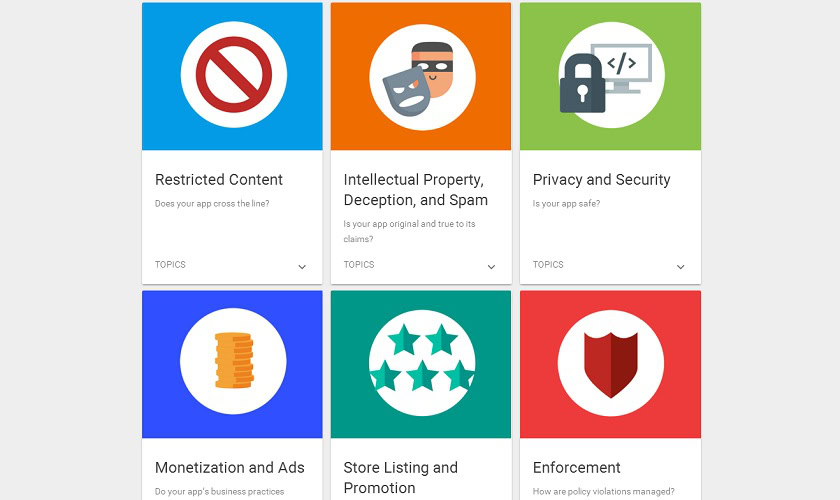Affiliate links on Android Authority may earn us a commission. Learn more.
Google updates Play Store terms to tackle inappropriate ads and apps
Published onMarch 2, 2016

Google has just rolled out a few important changes to its Developer Program Policy Center, the hub which lays out the rules for publishing apps to the Play Store. Google has revamped the look of its Center with a Material Design inspired visual overhaul, and has made changes to its policies in a bid to stamp out inappropriate ads and malicious apps.
Starting with the new user interface, the Policy Center is now organized into seven different categories, each with a brightly colored icon and card with an expandable dropdown list that gives an overview of the subtopics. Categories are organized into restricted content, intellectual property and spam, privacy and security, monetization and ads, store listings, enforcement, and updates.[related_videos title=”From the Play Store:” align=”right” type=”custom” videos=”676881,676879″]
Google is also attempting to curate a better app store experience with this update, having made a few changes to its rules and policies. One of the most notable changes is an update to the ads policy, which now prevents developers from incorporating ads which interfere with the use of an app, such as those annoying full screen ones. A change to the User Data Policy also restricts apps that collect contact information, such as names and phone numbers, from a user’s address book.
The other notable change for developers is a new requirement that prevents apps from attempting to bypass system power management features. Google introduced Doze mode with Android Marshmallow to help improve users’ battery life and clearly doesn’t want any rouge apps from undoing its hard work. This is probably a rule that developers will have to take a close look at.
For developers out there, Google is granting a 30 day period whereby businesses can unpublished or fix their app. Anyone caught breaking the new rules after then risks having their app permanently removed from the store. You can read through all of the rules over at the redesigned Developer Program Policy Center right here.